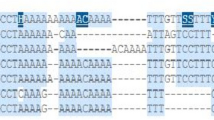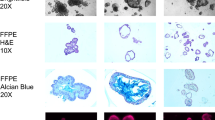Abstract
This meta-analysis aimed to assess the diagnostic efficiency of blood-based septin 9 (SEPT9) methylation assay for the detection of colorectal cancer (CRC). Studies were searched in the Springer, Wiley, Cochrane Library, PubMed, Ovid, Embase, Web of Science, China BioMedicine, Wanfang and China National Knowledge Infrastructure databases until July 2017. Methodological quality assessment was performed based on the guidelines of the Quality Assessment of Diagnostic Accuracy Studies. According to 1/3 and 2/3 algorithms, the meta-analyses for the diagnostic effect of SEPT9 in CRC were compared with healthy subjects and subjects with polyps, adenoma, and non-CRC, respectively. The random effects model was applied and publication bias was evaluated. The included 29 studies comprised 10,486 subjects (3202 patients with CRC and 7284 controls). In comparison with healthy subjects, the pooled sensitivity with 95% confidence intervals (CIs) of SEPT9 methylation for the diagnosis of CRC was 0.74 (95% CI: 0.61–0.84) in the 1/3 algorithm group, whereas the specificity was 0.96 (95% CI: 0.95–0.97) in the 2/3 algorithm group. Additionally, positive likelihood ratio was less than 10 and negative likelihood ratio more than 0.1 in the 2/3 algorithm group for patients with CRC vs. polyps and adenoma. The P value of Deeks’ funnel plot was 0.36, suggesting that there was no publication bias. SEPT9 methylation can be used to diagnose CRC in healthy individuals under the 2/3 algorithm. The determination of SEPT9 methylation does not distinguish well between CRC and polyps or adenoma.



Similar content being viewed by others
References
Aran V, Victorino AP, Thuler LC, Ferreira CG (2016) Colorectal cancer: epidemiology, disease mechanisms and interventions to reduce onset and mortality. Clin Colorectal Cancer 15(3):195–203
Christensen TD, Escoffery C, Plath J, Son HJ, Edwards SKE, Xu R (2017) Advances in colorectal neoplasms, pp 334
Brenner H, Kloor M, Pox CP (2014) Colorectal cancer. Lancet 383(9927):1490–1502
Chen W, Zheng R, Baade PD, Zhang S, Zeng H, Bray F, Jemal A, Yu XQ, He J (2016) Cancer statistics in China, 2015. CA Cancer J Clin 66(2):115–132
Siegel RL, Miller KD, Fedewa SA, Ahnen DJ, Meester RG, Barzi A, Jemal A (2017) Colorectal cancer statistics, 2017. CA Cancer J Clin 67(3):177–193
Bae JM, Kim JH, Kang GH (2016) Molecular subtypes of colorectal cancer and their clinicopathologic features, with an emphasis on the serrated neoplasia pathway. Arch Pathol Lab Med 140(5):406–412
El Bairi K, Tariq K, Himri I, Jaafari A, Smaili W, Kandhro AH, Gouri A, Ghazi B (2017) Decoding colorectal cancer epigenomics. Cancer Genet 220:49–76
Shen L, Catalano PJ, Benson AB 3rd, O'Dwyer P, Hamilton SR, Issa JP (2007) Association between DNA methylation and shortened survival in patients with advanced colorectal cancer treated with 5-fluorouracil based chemotherapy. Clin Cancer Res 13(20):6093–6098
Church TR, Wandell M, Lofton-Day C, Mongin SJ, Burger M, Payne SR, Castaños-Vélez E, Blumenstein BA, Rösch T, Osborn N (2014) Prospective evaluation of methylated SEPT9 in plasma for detection of asymptomatic colorectal cancer. Gut 63(2):317–325
Esteller M (2003) Relevance of DNA methylation in the management of cancer. Lancet Oncol 4(6):351–358
Dong L, Ren H (2018) Blood-based DNA methylation biomarkers for early detection of colorectal Cancer. J Proteomics Bioinform 11(6):120–126
Ganepola GA, Nizin J, Rutledge JR, Chang DH (2014) Use of blood-based biomarkers for early diagnosis and surveillance of colorectal cancer. World J Gastrointest Oncol 6(4):83
Wasserkort R, Kalmar A, Valcz G, Spisak S, Krispin M, Toth K, Tulassay Z, Sledziewski AZ, Molnar B (2013) Aberrant septin 9 DNA methylation in colorectal cancer is restricted to a single CpG island. BMC Cancer 13(398):1471–2407
Ravegnini G, Zolezzi Moraga JM, Maffei F, Musti M, Zenesini C, Simeon V, Sammarini G, Festi D, Hrelia P, Angelini S (2015) Simultaneous analysis of SEPT9 promoter methylation status, micronuclei frequency, and folate-related gene polymorphisms: the potential for a novel blood-based colorectal cancer biomarker. Int J Mol Sci 16(12):28486–28497
Johnson DA, Barclay RL, Mergener K, Weiss G, König T, Beck J, Potter NT (2014) Plasma Septin9 versus fecal immunochemical testing for colorectal cancer screening: a prospective multicenter study. PLoS One 9(6):e98238
Molnár B, Tóth K, Barták BK, Tulassay Z (2015) Plasma methylated septin 9: a colorectal cancer screening marker. Expert Rev Mol Diagn 15(2):171–184
Yan S, Liu Z, Yu S, Bao Y (2016) Diagnostic value of methylated septin9 for colorectal cancer screening: a meta-analysis. Med Sci Monit 22:3409–3418
Song L, Jia J, Peng X, Xiao W, Li Y (2017) The performance of the SEPT9 gene methylation assay and a comparison with other CRC screening tests: a meta-analysis. Sci Rep 7(1):3032
Nian J, Xu Sun SM, Yan C, Ma Y, Feng Y, Yang L, Yu M, Zhang G, Wang X (2017) Diagnostic accuracy of methylated SEPT9 for blood-based colorectal Cancer detection: a systematic review and meta-analysis. Clin Transl Gastroenterol 8(1):e216
Galanopoulos M, Tsoukalas N, Papanikolaou IS, Tolia M, Gazouli M, Mantzaris GJ (2017) Abnormal DNA methylation as a cell-free circulating DNA biomarker for colorectal cancer detection: a review of literature. World J Gastrointest Oncol 9(4):142–152
Grützmann R, Molnar B, Pilarsky C, Habermann JK, Schlag PM, Saeger HD, Miehlke S, Stolz T, Model F, Roblick UJ (2008) Sensitive detection of colorectal cancer in peripheral blood by septin 9 DNA methylation assay. PLoS One 3(11):e3759
Baratloo A, Elfil M, Negida A (2015) Part 3: positive and negative likelihood ratios of diagnostic tests. Emergency 3(4):170–171
He Na CW, Yongqi L, Liping Y, Huahong X, Biaoluo W, Yongzhan N, Xin W, Xuegang G, Kaichun W (2014) Clinical significance of detecting serum methylated Sept9 gene in diagnosis of coloretal cancer. Chin J Dig 34(11):726–731
Chen CH, Yan SL, Yang TH, Chen SF, Yeh YH, Ou JJ, Lin CH, Lee YT, Chen CH (2017) The relationship between the methylated Septin-9 DNA blood test and stool occult blood test for diagnosing colorectal Cancer in Taiwanese people. J Clin Lab Anal 31(1)
Devos T, Tetzner R, Model F, Weiss G, Schuster M, Distler J, Steiger KV, Grützmann R, Pilarsky C, Habermann JK (2009) Circulating methylated SEPT9 DNA in plasma is a biomarker for colorectal cancer. Clin Chem 55(7):1337–1346
He Q, Chen HY, Bai EQ, Luo YX, Fu RJ, He YS, Jiang J, Wang HQ (2010) Development of a multiplex MethyLight assay for the detection of multigene methylation in human colorectal cancer. Cancer Genet Cytogenet 202(1):1–10
Qiong HE, Wang M, Zhou JW, Liu N, Lai YR, Pathology DO (2015) Detection of ALX4 and SEPT9 methylation in human colorectal cancer by Multiplex MethyLight assay. J Sun Yat-Sen Univ (Med Sci) 36:657–662
Herbst A, Rahmig K, Stieber P, Philipp A, Jung A, Ofner A, Crispin A, Neumann J, Lamerz R, Kolligs FT (2011) Methylation of NEUROG1 in serum is a sensitive marker for the detection of early colorectal Cancer. Am J Gastroenterol 106(6):1110–1118
Jin P, Kang Q, Wang X, Yang L, Yu Y, Li N, He YQ, Han X, Hang J, Zhang J (2015) Performance of a second generation methylated SEPT9 test in detecting colorectal neoplasm. J Gastroenterol Hepatol 30(5):830–833
Kang Q, Jin P, Yang L, Wang X, An H, Liu L, Li N, Sheng J (2014) Significance of Septin9 gene methylation detection of plasma circulation DNA in colorectal cancer screening. Zhonghua Yi Xue Za Zhi 94(48):3839
Lee HS, Hwang SM, Kim TS, Kim DW, Park DJ, Kang SB, Kim HH, Park KU (2013) Circulating methylated septin 9 nucleic acid in the plasma of patients with gastrointestinal cancer in the stomach and colon. Transl Oncol 6(3):290–296
Liu Y, Tham CK, Ong SYK, Ho KS, Lim JF, Min HC, Che KL, Yi Z, Tang CL, Kong WE (2013) Serum methylation levels of TAC1. SEPT9 and EYA4 as diagnostic markers for early colorectal cancers: a pilot study. Biomarkers 18(5):399–405
Lofton-Day C, Model F, Devos T, Tetzner R, Distler J, Schuster M, Song X, Lesche R, Liebenberg V, Ebert M (2008) DNA methylation biomarkers for blood-based colorectal cancer screening. Clin Chem 54(2):414–423
Potter NT, Hurban P, White MN, Whitlock KD, Loftonday CE, Tetzner R, Koenig T, Quigley NB, Weiss G (2014) Validation of a real-time PCR–based qualitative assay for the detection of methylated SEPT9 DNA in human plasma. Clin Chem 60(9):1183–1191
Song L, Li Y, Jia J, Zhou G, Wang J, Kang Q, Jin P, Sheng J, Cai G, Cai S (2016) Algorithm optimization in methylation detection with multiple RT-qPCR. PLoS One 11(11):e0163333
Su XL, Wang YF, Li SJ, Zhang F, Cui HW (2014) High methylation of the SEPT9 gene in Chinese colorectal cancer patients. Genet Mol Res 13(2):2513–2520
Tänzer M, Balluff B, Distler J, Hale K, Leodolter A, Röcken C, Molnar B, Schmid R, Lofton-Day C, Schuster T (2010) Performance of epigenetic markers SEPT9 and ALX4 in plasma for detection of colorectal precancerous lesions. PLoS One 5(2):e9061
Tóth K, Wasserkort R, Sipos F, Kalmár A, Wichmann B, Leiszter K, Valcz G, Juhász M, Miheller P, Patai ÁV (2014) Detection of methylated septin 9 in tissue and plasma of colorectal patients with neoplasia and the relationship to the amount of circulating cell-free DNA. PLoS One 9(12):e115415
Warren JD, Xiong W, Bunker AM, Vaughn CP, Furtado LV, Roberts WL, Fang JC, Samowitz WS, Heichman KA (2011) Septin 9 methylated DNA is a sensitive and specific blood test for colorectal cancer. BMC Med 9(1):133
Wu Dong YH, Yue L, Jingnan L, Jiaming Q (2016) Detecting plasma methylated Septin9 gene combined with fecal immunochemical test in screening colorectal cancer and adenoma in outpatients. Chin J Dig 36(2):107–112
Wu D, Zhou G, Jin P, Zhu J, Li S, Wu Q, Wang G, Sheng J, Wang J, Song L (2016) Detection of colorectal Cancer using a simplified SEPT9 gene methylation assay is a reliable method for opportunistic screening. J Mol Diagn 18(4):535–545
Qingqing D, Hao Z, Haichen X, Xiaolin L, Yun S, Qiping X, Weihao S (2015) Value of methylated Septin 9 detection in screening colorectal cancer in elderly people. Chinese Journal of Geriatrics 34(12):1348–1350
Shijie L, Yangang L, Jing W, Changqi C, Yan Y, Peng Y, Qi W (2015) The application of Septin9 methylation in screening of colorectal cancer using peripheral blood. Chinese Journal of General Surgery 24(12):1756–1760
Zhen W, Jiachang C, Qiong H, Huanyu P, Zhenyu Z, Huayun C, Ming L (2012) The methylation SEPT9 detection in the early diagnosis for colorectal cancer using MS-HRM. Guangdong Medical Journal 33(12):1732–1734
Ørntoft MB, Nielsen HJ, Ørntoft TF, Andersen CL (2015) Performance of the colorectal cancer screening marker Sept9 is influenced by age, diabetes and arthritis: a nested case-control study. BMC Cancer 15(819):015–1832
Tóth K, Sipos F, Kalmár A, Patai ÁV, Wichmann B, Stoehr R, Golcher H, Schellerer V, Tulassay Z, Molnár B (2012) Detection of methylated SEPT9 in plasma is a reliable screening method for both left-and right-sided colon cancers. PLoS One 7(9):e46000
Powrózek T, Krawczyk P, Kucharczyk T, Milanowski J (2014) Septin 9 promoter region methylation in free circulating DNA—potential role in noninvasive diagnosis of lung cancer: preliminary report. Med Oncol 31(4):917
Beneish MD (1999) The detection of earnings manipulation. Financ Anal J 55(5):24–36
Author information
Authors and Affiliations
Corresponding author
Ethics declarations
Conflict of Interest
The authors declare no conflicts of interest.
Rights and permissions
About this article
Cite this article
Sun, G., Meng, J., Duan, H. et al. Diagnostic Assessment of septin9 DNA Methylation for Colorectal Cancer Using Blood Detection: A Meta-Analysis. Pathol. Oncol. Res. 25, 1525–1534 (2019). https://doi.org/10.1007/s12253-018-0559-5
Received:
Accepted:
Published:
Issue Date:
DOI: https://doi.org/10.1007/s12253-018-0559-5




